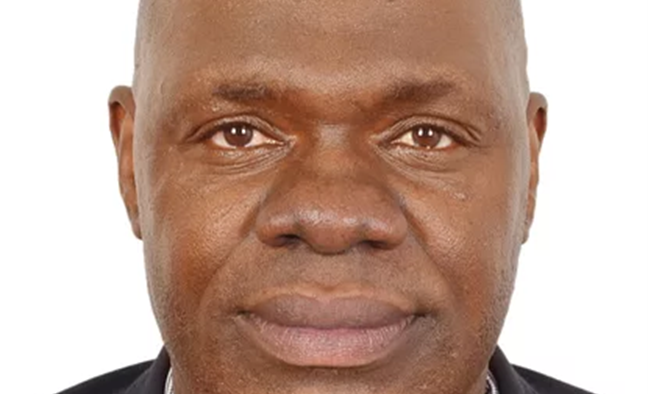Climate Change: The Underlying Challenges and Possible Solutions
Share

By Thabisani Dube
In recent years, “climate change” has become a buzz word in people’s conversations, news headlines, and societal concerns. But what exactly is climate change, and why is it a pressing issue that demands attention, action, and NOW!?
Climate change affects the entire world, including Zimbabwe, where failed crop seasons threaten food security. In other countries, especially in developing regions, the rising population increases food demand, potentially leading to food shortages.
The long-term shift in temperatures and weather patterns is due to human activities such as burning fossil fuels, deforestation, and industrial processes that emit greenhouse gases like carbon dioxide. These gases trap the sun’s heat, warming the Earth’s surface and disrupting climate systems.
Zimbabwe has experienced extreme weather, with a severe drought in 2016 affecting over four million people and floods in 2014 displacing thousands. The Ministry of Environment and Wildlife notes rising temperatures and unpredictable rainfall, which could increase by up to 2 degrees Celsius by 2050. This change is likely to reduce maize crops and increase water shortages, threatening food security.
The World Bank warns that climate change could push over 100 million people into poverty by 2050.
Switching to renewable energy like solar and wind and cutting carbon emissions are critical to prevent severe impacts. The benefits of a green economy surpass the costs of doing nothing, urging immediate action from policymakers and leaders.
In February 2020, the Office for the Coordination of Humanitarian Affairs (OCHA) noted the humanitarian impacts of climate change in Zimbabwe, including severe weather events that cause crop failures and community displacement.
The International Food Policy Research Institute (IFPRI) has shown that decreasing crop yields and livestock productivity could worsen food insecurity and malnutrition. Their latest report, released December 12, 2023, is titled “Re-imagining Africa’s food security in the context of climate change and ecological sustainability.”
The World Health Organisation warns that climate change will likely increase the incidence of diseases like malaria, cholera, and typhoid fever in Zimbabwe.
“Climate-smart agriculture” is vital for enhancing crop resilience. While the government plans to increase investments in renewable energy and promote climate-resilient agricultural practices, more comprehensive measures are required.
Shepherd Zvigadza, Southern Africa Region Climate Action Network (SARCAN) coordinator, has worked on climate adaptation and energy projects with various organisations including United Nations agencies and bilateral donors.
“Climate change and what’s going on with our weather is putting our food supply at risk. Zimbabwe is actively engaged in global efforts to tackle climate change through participation in international agreements such as the Paris Agreement. The country has recognised the importance of mitigating greenhouse gas emissions, promoted clean energy, and enhanced climate adaptation strategies to build resilience in the face of climate change impacts”.
Zvigadza emphasises that Zimbabwe can boost climate action by adopting renewable energy, improving energy efficiency, and applying sustainable practices in sectors like agriculture and transport. He also highlights the need for stricter regulations, emission targets, and private-sector partnerships to achieve sustainable development and meet global climate objectives.
“Policymakers, researchers, and stakeholders in Zimbabwe can enhance collaboration by establishing platforms for dialogue, knowledge-sharing, and joint decision-making processes. By bridging the gap between scientific research, policy formulation, and practical solutions, Zimbabwe can better integrate climate change strategies into development plans and enhance the resilience of communities facing climate-related challenges,” said Zvigadza.
Climate scientists emphasise the importance of greater collaboration to tackle current climate science challenges. They caution that climate change could lead to a 40 percent increase in malnourished individuals in sub-Saharan Africa by 2050, rising from 223 million to 335 million.
Washington Zhakata, a climate scientist and director of the Climate Change Department, in the Ministry of Environment, Climate and Wildlife, emphasised that insufficient research, data collection, and funding hinder efforts to address climate change.
“Climate change research in Africa, including Zimbabwe, is limited, and assumptions are often made about the situation on the ground,” Zhakata said. “We need more peer-reviewed research, data collection, and archiving to inform policy decisions effectively.”
Zhakata added that the importance of interdisciplinary cooperation, integration of indigenous knowledge systems, and access to climate data and models.
“We must work together to enhance our understanding of climate systems, improve research, and develop effective adaptation and mitigation strategies,” he stressed.
Effective communication of scientific findings to policymakers and stakeholders is also crucial. “We need to translate our research into actionable information to support climate-resilient development,” Zhakata said.
Cheryl Khupe, a Harare-based communications specialist (external and corporate relations) at the World Bank Group said her organisation is committed to supporting developing countries in their climate action efforts, and to mobilise $50 billion in climate financing by 2025.
“The current state of climate change policy and international agreements is crucial in guiding our efforts,” said Khupe, who is also a global expert at the World Bank. The Paris Agreement sets a clear framework for countries to reduce greenhouse gas emissions and adapt to the impacts of climate change.”
The World Bank, an international financial institution, offers loans and grants to support capital projects in low- and middle-income countries. It promotes climate action through carbon pricing, renewable energy targets, and green bonds.
‘’Collaboration among policymakers, researchers, and stakeholders is essential to translating scientific findings into practical solutions,” says Khupe., adding: “The World Bank is organizing a global conference to unite experts and leaders in sharing knowledge and best practices for climate action. ‘’
Khupe also emphasised the urgency of the climate crisis by stating, “Climate change is a current issue, not just a future problem.’’
Taking urgent action to reduce greenhouse gas emissions, transition to renewable energy, and adopt sustainable practices is crucial in protecting the planet and minimizing the harmful effects of climate change. By raising awareness, advocating for policy changes, and reducing carbon footprints through individual efforts, we can combat climate change and create a healthier, more resilient world for future generations









